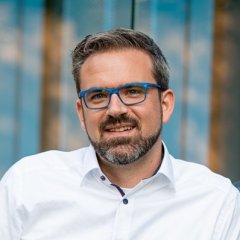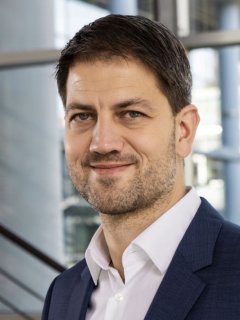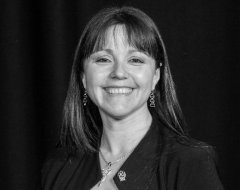ICSSP 2023 will feature three keynotes from the following distinguished speakers.
A.I.gile - How Agile and AI (e)merge in practice
Prof. Dr. Philipp Diebold IU International University and BagilsteinAbstract
This presentation will focus on how Artificial Intelligence (AI) can be integrated into Agile processes. It will explore the ways in which AI can enhance Agile methodologies and improve the delivery of software solutions. The presentation will discuss the challenges and considerations that organizations must take into account when implementing AI in Agile environments. Attendees will gain insights on how AI can improve Agile processes and deliver innovative and valuable solutions.Bio

Prof. Dr. Philipp Diebold started working in applied research at the Fraunhofer IESE (Institute for Experimental Software Engineering) in the area of processes and project management in Software Engineering. Combining research activities with practical consulting and coaching is his passion till this day. Thus, he did his PhD at the TU Kaiserslautern on the topic of "Finding the individual appropriate agility" with several company case studies. In 2018, Philipp co-founded Bagilstein as a coaching and consulting company with focus on agile. His company and the philosophy is based on the approach developed in his PhD – finding the appropriate Agility with a systematic, methodological, scientifically-founded and data-oriented approach. Furthermore, he is a Disciplined Agile Instructor and trainer for the German Association of the Automotive Industry (VDA). Since 2021, Philipp reduced the activities for his own company due to the fact that he holds a Professorship for Business Informatics at the iu International University, Germanies largest University with more than 100.000 students. Along with research activities on processes, agility, new work and organizational design, his focus is on teaching and transferring knowledge.
A Technical Focus on Business Process Management – Past, Present, and Emerging Topics
Prof. Dr. Ingo Weber TU Munich and Fraunhofer GesellschaftAbstract
The goal of this talk is to provide an overview of the BPM field, which is very related to software engineering in several ways, and responsible for 2 out of 9 German unicorn startups. Accordingly, the talk will start with a short excursion into history, including a 100 year old process model. Then I will discuss process enactment and its relation to low & no-code development and model-driven engineering. The past 10 years of BPM were heavily influenced by process mining, a flavor of data mining using a process lens. On several occasions I will give examples using emerging technologies like blockchain. The talk will finish with a brief view on augmenting BPM technologies with artificial intelligence (AI).Bio

Ingo Weber is a full professor at TU Munich and a director at the Fraunhofer Gesellschaft. As Fraunhofer’s director for IT infrastructure and digital transformation, he leads a substantial department within the Fraunhofer head office, and is responsible for digital innovation. At TUM, he leads a research group on IT Service Management, Development and Operations. The research of Ingo Weber covers various subfields of computer science, primarily business process management and process mining, software architecture and engineering, DevOps, blockchain, and applied AI. Besides many peer-reviewed publications, he co-authored three books, including "DevOps: A Software Architect's Perspective" in 2015 and "Architecture for Blockchain Applications" in 2019. Ingo Weber’s research focuses on solving use-inspired problems with scientific means, in areas of his expertise. Before moving to Munich, Ingo Weber was a full professor for Software and Business Engineering at TU Berlin from 2019 to 2022. Prior to that, he spent 10 years in Sydney, Australia, where he worked at the CSIRO, NICTA, and UNSW. He received his PhD from the University of Karlsruhe (TH) in 2009, which he completed while working for SAP Research in Germany.
AI-Augmented Software Engineering: Revolutionising or Challenging Software Quality and Testing?
Dr. Tafline Ramos, Amanda Dean and David McGregor Planit, an NRI CompanyAbstract
ChatGPT itself offers great optimisations to initial research and document writing for industry practitioners. However, it also suffers from key issues, such as not being able to reference the sources of its ideas. It also has the potential for making incorrect inferences that could be mistakenly accepted as factual by end-users, used in workplace documentation, or in the worst case, published on the internet, and then utilised in future releases of AI-based tools, creating negative feedback loops in human learning. In this talk, we will look at the current benefits and shortcomings of AI-based software quality improvement tools, and the challenges of testing AI-based software from a Quality Engineer’s perspective. We will look at international standards and training courses for AI development and testing. We will also explore problems that quality engineering practitioners would like to see solved in the future, to enable a wholistic approach to AI-augmented software quality engineering.Bio

As Planit’s global Practice Director for Quality Engineering and Assurance, Tafline is responsible for driving best quality practices across Planit, including its thousands of consultants and hundreds of clients worldwide. Tafline holds a PhD in software testing and is a regular feature in software engineering, technology and quality engineering conferences. She has over 20 years of experience in the ICT industry and is an international standards leader, developing software engineering standards with ISO and IEEE. Tafline also regularly volunteers with various universities and is chair of the industry advisory committee for the Department of Computer Science and Information Technology at La Trobe University.

Amanda Dean (MBusInfSys) is the Associate Practice Director of Quality Engineering at Planit. Her client work specialises in audits, litigation, business transformation, and project recovery for large, complex and safety critical software programmes. Amanda is a thought leader whose practice work covers a range of interests including sociotechnical approaches to software engineering, privacy and security concerns of test data, quality engineering training and emerging technologies. This is reflected in her master’s research project, which considered the impacts of AI on the software testing profession, examining both AI assisted software testing, and how software testing practices may need to evolve to be able to effectively test AI systems. She is a sought-after guest lecturer at universities in Victoria.

David McGregor is an Associate Practice Director for Automation Engineering at Planit. With more than 16 years of DevOps and software engineering experience, he is an experienced leader that is responsible for building our global engineering capability. He champions and role-models strong values and people initiatives for our next generation of engineers, actively building team culture and facilitating team member performance, learning, career development, safety, and well-being. Prior to joining Planit in 2019, he was Associate Director - Practice Lead at Cognizant. Prior to that, he was Lead Engineer at Odecee, and before that Principal QA Specialist at SEEK. He has also held senior IT roles at financial organisations such as Goldman Sachs, Merrill Lynch, and Macquarie Bank. David’s involvement in many digital transformations places him at the forefront of today’s global technology landscape. He has worked with a wide range of clients, from start-ups to enterprise, in both technical and business roles, and has led large teams and evolved a vision, roadmap, and associated go-to market strategy for global enterprise firms.